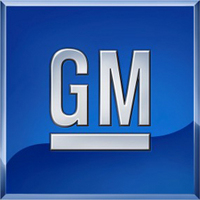Low Ratings End Show and a GM Product Placement
 |
- SEE ALSO: ALL GM ARTICLES
By BRIAN STELTER - TV Newsday
EVEN in a fictional world, it seems, General Motors cannot catch a break.
The struggling car company’s splashy deal to integrate two vehicles into the NBC drama “My Own Worst Enemy” hit a snag Thursday when the network confirmed that it was canceling the series after only four episodes had been shown.
The partnership represented a big push for both G.M., which has sought new ways to market cars and trucks in a troubled economy, and NBC, which has aggressively recruited advertisers to underwrite some of the production costs of its shows.
The demise of “My Own Worst Enemy” highlights the risks of the advertiser partnerships that NBC and other broadcasters are turning to. But the network is not backing away from the model; if anything, it is doubling down. “Our partners understand that it’s a risky business,” said Marc Graboff, the co-chairman of NBC Entertainment, in an interview Thursday. “But they want to be more integrated with our content.”
Product placements in television shows and films have always existed, but they have become more elaborate in recent years. The newest forms of brand integration now make cars into characters and insert insurance company messages into story lines, and automakers like G.M. are driving much of the innovation, lending their vehicles for scenes and signing expensive partnership deals with Hollywood producers.
For “My Own Worst Enemy,” a much-promoted Monday night series, NBC and G.M. seemed to do everything right: they teamed up early in the production process, created commercials together and carefully added the Camaro and Traverse brands to the story lines.
Christian Slater played an ordinary middle-class father who is also a secret agent, complete with suitable G.M. cars for each personality, a Traverse sport utility vehicle and a Camaro convertible.
But as smart as “brand integrations” may be, they are only as effective as the show itself. Viewers rejected “My Own Worst Enemy” quickly; the most recent episode drew only 4.3 million viewers and put NBC in fourth place for the hour.
The network will show the remaining five episodes, in part to satisfy its partnership with G.M.
Neither partner expressed regrets; Kelly Cusinato, a spokeswoman for G.M., said in a statement that the company was “excited to be a part of the series.”
“We continue to look for great opportunities, ideas and partnerships within the larger entertainment business,” Ms. Cusinato said.
Well before G.M. looked to receive government financial support, the company started cutting back its television ad spending. In the first half of the year, its spending declined 13 percent compared with the same time last year, according to Nielsen.
Weakness in the automotive sector trickles down to advertising-supported companies; automakers represent the largest advertising category for TV networks. While G.M. declined to comment on its advertising budget, the company has withdrawn from its regular advertising slots in the Super Bowl and the Academy Awards.
By all accounts, brand integrations are a compelling alternative to 30-second commercial spots; Variety reported last month that the automakers “have been among the biggest spenders” for the format. Infiniti is sponsoring branded segments on “Inside the Actors Studio,” which had its season premiere on Bravo last week. Hyundai is featuring its new Genesis sedan in “24: Redemption,” a two-hour movie to be shown on Fox on Nov. 23.
“Advertisers must get their messages across within content, where it’s done organically, seamlessly, and doesn’t interfere with the cognitive rejection factor” of traditional commercials, said Frank Zazza, the chief executive of iTVX, a firm that measures exposure to branded entertainment.
Although the details of the partnership between NBC and G.M. were not disclosed, integration deals can be set up on a sliding scale, adjusting the payments and the number of the product placements depending on the performance of the series. Sometimes networks will create custom sponsorships or other content to make up for poor ratings or cancellations.
G.M.’s deal with NBC began at the network’s “infront” for advertisers last April. Held one month before the normal upfront presentations, the meetings were meant to jump-start conversations with marketers and make product integrations more likely to succeed. The integrations themselves have had a noticeable impact, even if some of the shows have not.
“Every single first-year show we’ve launched has an advertising partner in place, which has probably never happened in broadcast TV,” Ben Silverman, the other co-chairman of NBC Entertainment, said at the New York Television Festival in September.
Mr. Silverman is the loudest supporter of brand integrations in network television today. Since joining NBC in the summer of 2007, he has pushed the network to include advertisers in every step of the production process and has spoken about doing more for advertising clients.
To promote the Dodge Ram, Mr. Silverman moved the debut of a competition show, “America’s Toughest Jobs,” to summer 2008 from 2009. “They had a vehicle they wanted to launch, and we worked with them,” he said.
The automaker deals did not end there: NBC continues to back “Knight Rider,” starring a Ford Mustang in the role of the talking car KITT, despite the show’s relatively low ratings on Wednesday nights. Mr. Graboff said advertiser partnerships were weighed when decisions were made about canceling or renewing shows, but “it’s not the determining factor.”
The network may break new marketing ground with “Kings,” a drama recreating a David vs. Goliath-style battle that is scheduled for a winter debut. The series’s principal sponsor, Liberty Mutual, is not inserting blatant mentions of its insurance policies into the scripts; instead, it is connecting the theme of the show to its long-term marketing campaign about responsibility.
“It’s not just about sticking a Coke can on a desk anymore,” Mr. Graboff said. “It’s an evolving form.”



